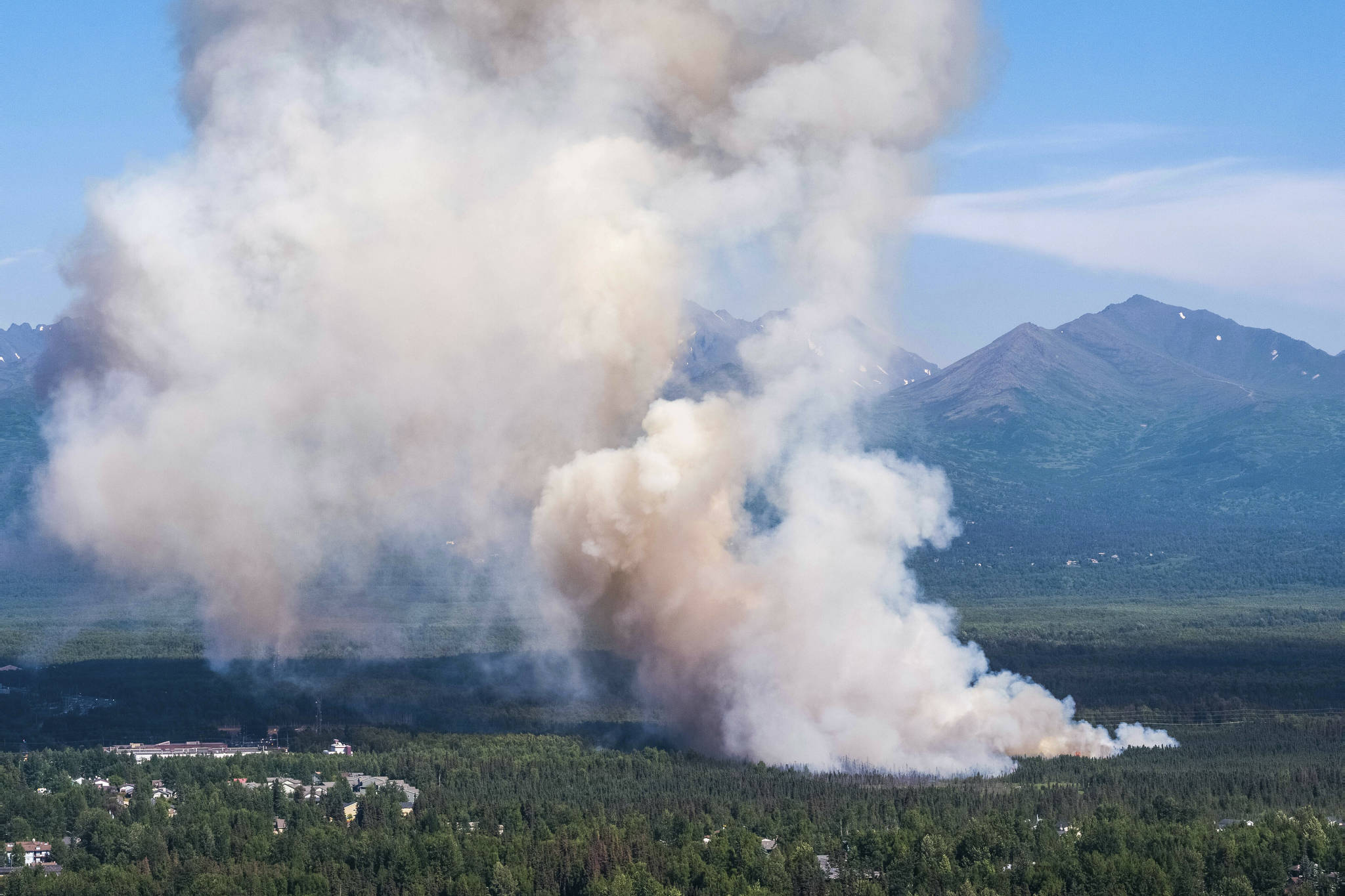Now that the EPA has banned wood stoves in Fairbanks because of how harmful it is to breathe wood smoke, maybe they could ban wildfires too.
Seriously though, among all of the other harmful chemicals in wood smoke is climate changing CO2. Science claims we have 12 years to lower CO2 levels in the atmosphere or it will be too late.
There may be debate about how much CO2 is released by wildfires but it is such a needless emission and so many animals are literally burned alive. Stopping wildfires should be the No. 1 goal of any CO2 emission reduction plan. Firefighters have claimed, the biggest obstacles to fighting wildfires is access to the fire and water to put it out once you get there.
There are some disasters that we can’t do much to stop or prevent, but wildfires and floods can at least be mitigated in a way that lowers CO2 emissions and raises the sequestration of CO2 by providing freshwater for agriculture.
The Roadless Rule was created to protect our forest but actually the opposite is what is currently happening with wildfires, bug infestations and huge blow down areas. Now with climate change, science tells us we can expect more drought, more wildfires, more floods and just more extreme events. This makes protecting our forest even more important than ever.
It is for this reason the president should declare climate change a national emergency. Then eliminate the Roadless Rule and began building a forest protection system of roads that divide our forest into a grid of whatever size parcels we can protect. Along the side of these roads a storm-water collection system would be installed to power the wildfire protection system and provide freshwater for agriculture projects. Because this system will only collect storm-water with millions of collection points it will not lower the low water level of streams or rivers. This can lower flood intensity and the freshwater for the fish is still protected.
Once the freshwater is in a pipeline it can be sent to where it can be best utilized. When pumps are used to move the water, they can be powered by solar or wind and then the moving water becomes the transmission line. At the destination the water flows through a turbine and you get electricity and the water.
These waterlines could border major highways in remote areas throughout the U.S. and power electric car charging stations. The waterlines along the highways would always provide wildfire safe travel routes when equipped with high power irrigation sprinklers.
Freshwater is only an asset of the U.S. for the amount of time it takes for it to rain on the mountains until it flows into the sea. This year floods did billions in damages, destroyed lives and then flowed polluted into the ocean.
By collecting the freshwater before it becomes polluted it can be used to supply drinking water to communities that have contaminated ground water and it can be used to flush out aquifers that have become inundated with saltwater.
This type of climate change mitigation can be profitable with increased agriculture and decreased CO2 emissions. Stopping wildfires could save billions and providing more freshwater will make billions in the agriculture industry. This will translate into millions of jobs that can help the whole economy while slowing climate change.
It is still debatable as to whether lower CO2 levels will slow warming, but no matter what we still get clean air, more crops and wildfire protection for all the other species in the forest. Because Alaska is so big it is going to require a lot of roads, just because you build a road doesn’t mean you have to log the forest to protect it. In fact, many of the roads would not be in a log producing forest at all.
One thing is really obvious after enduring this current heat wave and breathing all of this smoke for the past few days, there is no way we can continue to fight wildfires the same way or there won’t be any forest left. The time for study has passed, the time for action is now.
• Steve Bowhay lives in Juneau, co-owns Glacier Gardens and is a conservationist. My Turns and Letters to the Editor represent the view of the author, not the view of the Juneau Empire.


